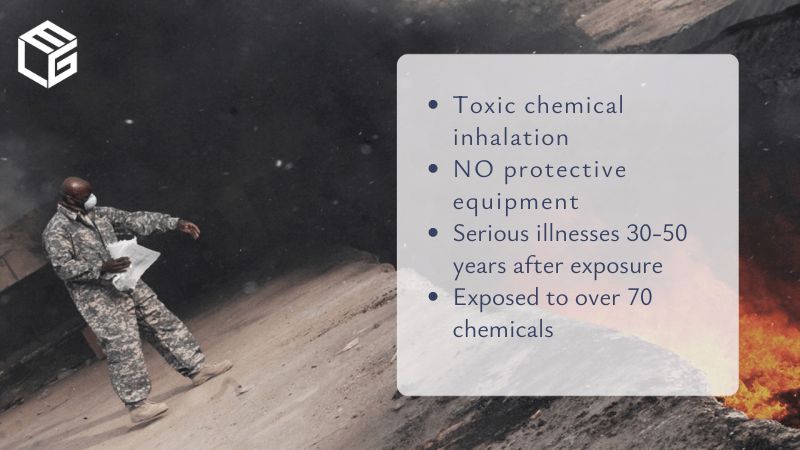The U.S. Army began using asbestos-containing products and building materials in the 1930s. The toxic material was used throughout barracks, mess halls, hospitals, and other buildings where soldiers worked, slept, and ate. Asbestos products veterans were exposed to include:
Due to its confirmed toxicity, the military stopped using asbestos in large part in the 1970s, but this does not change the fact that there are entire generations of Army veterans who have done their service in toxic mediums breathing in asbestos fibers released into the air by the disturbance of asbestos-containing material during maintenance and repairs to various heat-related machinery and heavy-duty equipment on military bases.
Our clients served at various Army bases throughout the country, including:
- Camp Blanding
- Camp Pendleton
- Oakland Army Base
- Fort Huachuca
- Camp Blanding
- Camp Beale
- Fort Eustis
- Fort McClellan
- Camp McCain
- Fort Niagara
- Murphy Army Hospital
- Fort Lewis Army Hospital
- Fort Hunter Liggett
- Fort Devens
- Camp Fannin
- Camp Dodge
- Fort Pickett
- Fort Irwin
- Fort Lawton
- Fort Collins
- Camp Cook
- Fort Mason
- Fort Thomas
- Fort Snelling
- Fort Chaffee
- Fort Mead
- Camp Stoneman
- Camp Howe
- Fort Buchanan
- Camp Atterbury
- Fort Drum
Surviving family members of deceased U.S. Army veterans are entitled to financial compensation
If you or your loved one is a veteran of the United States Army recently diagnosed with lung cancer, bronchial cancer, mesothelioma, asbestosis, or other asbestos-related pulmonary diseases, contact us today to learn about your legal rights. Even if a loved one has already passed away due to an asbestos-related condition, a spouse, child, or representative may still be entitled to VA benefits in addition to compensation from asbestos trust funds.
Asbestos exposure jobs in the U.S. Army
